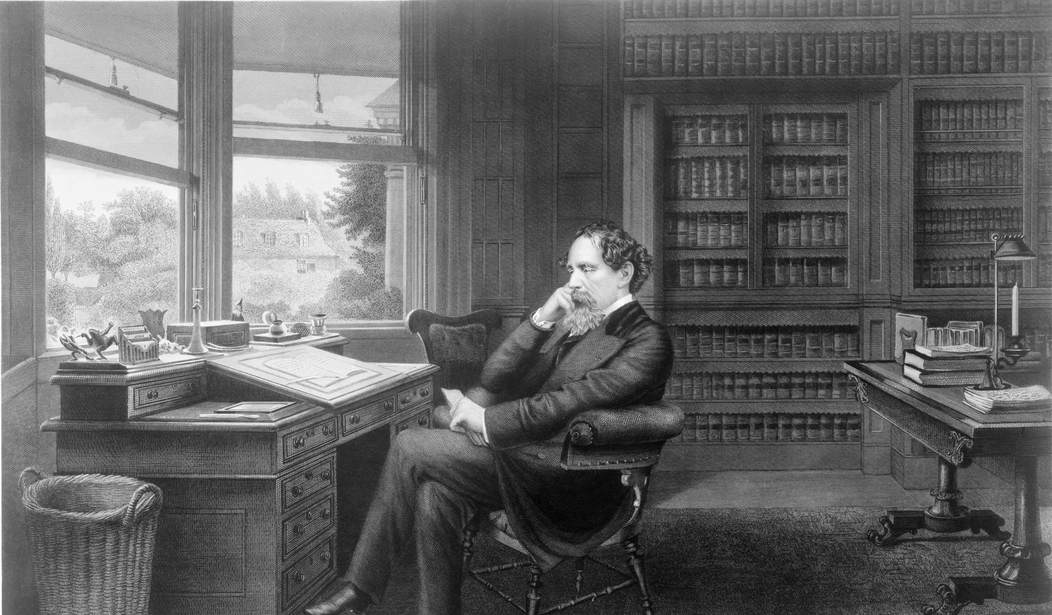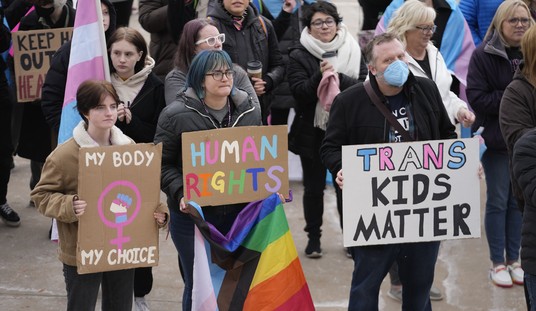Students at Yale University recently sent a petition asking the English department to drop two required classes covering “Major English Poets” because reading those poets “creates a culture that is especially hostile to students of color.” As a graduate of Hillsdale College who benefitted from not just reading but deeply digesting the works of William Shakespeare, John Donne, and John Milton, among others, I must protest. Reading these particular dead, rich (some not-so-rich) white guys is extremely valuable, and every English major should have to do it.
I must also condemn the spirit of these students. Their letter explicitly rejects the mere adding of works written by “women, people of color, and queer folk,” and instead insists that these white male literary giants be excised from the curriculum. “It’s time for the English major to decolonize — not diversify — its course offerings,” the students write (emphasis added). It’s time to yank out excellent works of literature, just because of the race, class, and gender of their authors. Hmm, I thought conservatives were supposed to be the racists.
The students object to a “Major English Poets” sequence, a mandatory two-course commitment for English majors. In these classes, students read Geoffrey Chaucer, Edmund Spenser, William Shakespeare, John Donne, John Milton, Alexander Pope, William Wordsworth, and T.S. Eliot. It’s the kind of list you’d expect every English major to know well. After all, these are the most influential poets in the English language.
Never mind the class’s literary merit. “It is unacceptable that a Yale student considering studying English literature might read only white male authors,” the students wrote (emphasis added). Oh, it’s “unacceptable” that any Yale student just considering studying English “might,” just maybe, “read only white male authors.” So what are you going to do, have a mandatory black lesbian literature course? These aren’t reasons against the required course, but reasons for another one. The hyperbole here is telling — it suggests the students don’t really have an argument.
The students go even further: “A year spent around a seminar table where the literary contributions of women, people of color, and queer folk are absent actively harms students, regardless of their identity.” Wow. So reading dead white men without the saving grace of some minority transgender lesbians is a kind of abuse? I went through such seminar discussions at Hillsdale for four years, and I don’t have PTSD. Guess I might just be lucky.
Returning to the topic at hand, the students argued that “the Major English Poets sequences (sic) creates a culture that is especially hostile to students of color.” Here comes the point in the essay where any good English student would cite a source or two, provide some quotes, explain how Shakespeare, Donne, and Chaucer expressed prejudices against these sacrosanct minority groups. You know, actually investigate some literature and come up with arguments against it.
Oh, were you expecting some intellectual heft? Here’s what you get instead: “When students are made to feel so alienated that they get up and leave the room, or get up and leave the major, something is wrong.” So students who say they feel alienated is enough evidence to prove that the giants of English literature create a “hostile culture”? Anyone can claim to be offended. This is no argument.
Next Page: What the “Major English Poets” do teach.
Finally, the students argue that the course does not prepare them “to take higher-level courses relating to race, gender, sexuality, ethnicity, nationality, ability, or even to engage with critical theory or secondary scholarship.” This sounds even more like a cop-out. Each of those qualities feature in Shakespeare’s works — crossdressing in plays like “Twelfth Night,” sexuality in “Romeo and Juliet,” race in “Othello,” and ability in “Hamlet.”
Oh, and there are scores of other deep human struggles that cut across such boundaries which form the centerpiece of these works. Perhaps a better understanding of the desire for revenge (Hamlet), the struggle for redemption (also Hamlet, and King Lear), opposition to the cruel hand of fate (Romeo and Juliet), and the tragedies of hubris (Julius Caesar) and misrule (King Lear) will actually prepare students to delve into these themes as they apply to people of specific races, genders, and abilities. This is what literature is about.
Further, critical theory is a philosophical approach to literature that can be taught using any text, and only requires its own course in higher realms of study. There are reams and reams of secondary scholarship on each of these authors, and students should be required to research them for papers, as I was — and I wasn’t even an English major!
Yes, Shakespeare, Donne, Pope, Wordsworth, and T.S. Eliot were all white men. They had various kinds of privilege, and they overlooked the struggles of specific minority groups. But they faced struggles of their own, and they wrote about the human condition — universal themes that cut across the artificial lines of identity politics.
Whether you’re straight or gay, white or black, male or female, you can understand and appreciate the despair at the end of a civilization in T.S. Eliot’s “The Wasteland,” or feel the contradictions of a love both fulfilling and demanding in John Donne’s “Batter My Heart, Three Personed God,” or sense the agony of a man trying and failing to repent of his sin in Claudius’ speech in “Hamlet.”
Who has not felt the chilling allure of Satan’s speech in Milton’s Paradise Lost, where he declares, “it is better to rein in Hell than serve in Heav’n”? What sorry man or woman has not felt the triumph of the human spirit reading Alexander Pope’s “Essay on Man”? Or the joys and struggles of a romantic relationship in Edmund Spenser’s “Epithalamion”? These are universal experiences, available to all, which enrich human experience.
God forbid we entertain the thought that these grand themes and central human struggles are beyond the reach of women, racial minorities, or homosexuals! Every human soul is capable of such depth and emotion, and any attempt to shield someone from this type of literature is not charitable, but insulting.
Next Page: How identity politics sows division and hampers the study of English literature.
To reject great literature in the name of divisions like race, class, and gender is a fundamental attack on the idea that all men and women can appreciate the achievements, losses, and emotions of the past.
As Katy Waldman wrote over at Slate, “For all the ways in which their particular identities shape their work, these writers tried to represent the entire human condition, not just their clan.” She hits the nail on the head when she writes, “The ‘stay in your lane’ mentality that seems to undergird so much progressive discourse–only polyamorous green people really ‘get’ the ‘polyamorous green experience,’ and therefore only polyamorous greens should read and write about polyamorous greens, say–ignores our common humanity.”
By all means, let us find such literature in other corners, among racial and sexual minorities, and most certainly in the mouths of women. But let us never reject the human condition in the name of identity politics.
If we honestly believe that only straight white men can appreciate the great works of English literature, we begin to cut ourselves off from the common thread of humanity and retreat into self-imposed intellectual isolation. If women only read works by other women, blacks only read works by other blacks, and gays only read works by other gays, each rejecting the rich common heritage we do possess, every group would become increasingly isolated from the others, essentially speaking its own language which cannot ever be fully translated.
To do so would not only be an insult to the very idea of English literature, it would be barbaric — not in the sense of the strict definition (rude, offensive, or primitive) but as a description of the cacophony of voices unable to understand one another. To each isolated group of thought the words and ideas of others would come across as “bar bar,” utterly meaningless gestures that dehumanize the other and make us less compassionate, understanding, and charitable as a race.
This compassion, understanding, and charity is what we gain — and what we give — when we read the great works of those long dead. Literature is about bridging the gulf of understanding, and overcoming the ultimate barrier, between the living and the dead. Whoever discusses the deep themes of the human condition, be they black, white, Hindu, Muslim, Christian, homosexual, male, female, or anything else — those are the authors I want to read. And the reason I want to read them is because I learned from dead rich white guys like William Shakespeare.










Join the conversation as a VIP Member